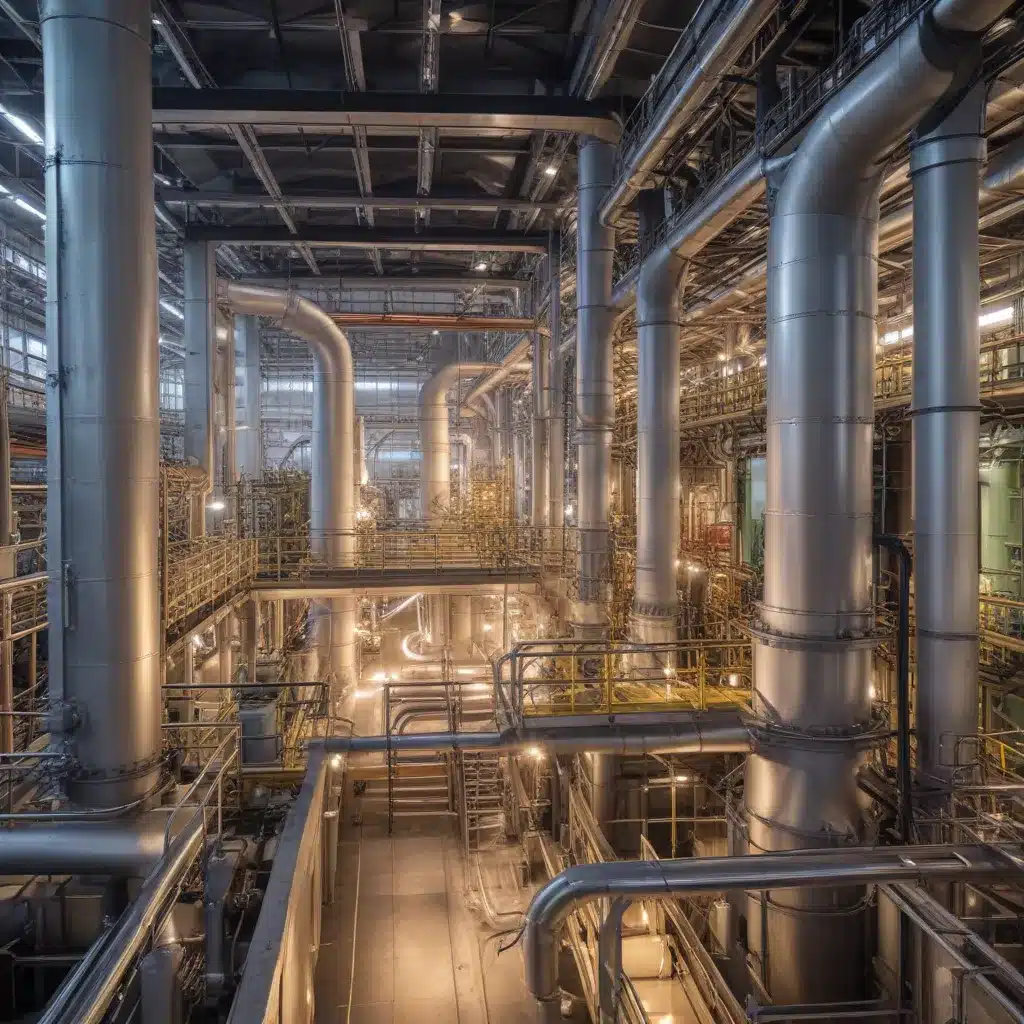
The shift towards a sustainable, low-carbon European economy is gaining unprecedented momentum. As the continent ramps up its renewable energy capacity and transitions away from fossil fuels, a critical piece of the decarbonization puzzle lies in tackling the energy-intensive industrial sector. Europe’s heavy industries, responsible for a significant portion of the region’s greenhouse gas emissions, are now at the forefront of the clean energy revolution, exploring innovative solutions to heat their processes using renewable electricity.
Renewable Electricity-Powered Industrial Heating
The widespread adoption of renewable energy sources, particularly wind and solar, has been a cornerstone of Europe’s decarbonization strategy. These clean energy technologies are now cost-competitive with traditional fossil fuel-based power generation, making them an increasingly attractive option for businesses seeking to reduce their carbon footprint.
Advantages of Renewable Electricity
The use of renewable electricity to power industrial heating processes offers several key advantages. Firstly, it significantly reduces the reliance on fossil fuels, which are a major contributor to greenhouse gas emissions. Secondly, the cost of renewable electricity has been steadily decreasing, providing businesses with a more affordable and predictable energy source compared to volatile fossil fuel prices. Additionally, the integration of renewable energy into industrial heating systems can enhance energy resilience, as these systems are less vulnerable to supply disruptions or geopolitical tensions that can affect traditional fuel supplies.
Challenges in Implementing Renewable Heating
Despite the clear benefits, the transition to renewable electricity-powered industrial heating is not without its challenges. Integrating these systems into existing industrial operations can require significant infrastructure upgrades and process modifications, which can be capital-intensive. Additionally, the intermittent nature of renewable energy sources, such as wind and solar, necessitates the development of advanced energy storage solutions to ensure a reliable and consistent heat supply.
Emerging Technologies for Renewable Industrial Heating
To address these challenges, innovative technologies are emerging that harness the potential of renewable electricity to meet the heat demands of European industries. One such technology is the Stirling cycle high-temperature heat pump (HTHP), which can efficiently upgrade low-grade waste heat or renewable energy sources to deliver high-temperature process heat. This system is often coupled with a bio-inspired phase change material (PCM) thermal energy storage (TES) system, enabling the storage of excess renewable energy for use during periods of high demand or low renewable energy generation.
Environmental Impact of Industrial Decarbonization
Reduction in Carbon Emissions
The widespread adoption of renewable electricity-powered industrial heating systems can have a significant impact on Europe’s environmental footprint. According to a recent study, the theoretical potential heat demand that could be met by such systems in Europe is a staggering 134.92 TWh annually, with an estimated annual reduction of 19.40 million tonnes of CO2 emissions.
Transition Towards Sustainability
Beyond the immediate reduction in carbon emissions, the shift towards renewable industrial heating represents a broader transition towards a more sustainable and environmentally responsible industrial landscape. By embracing clean energy technologies, European industries can reduce their reliance on fossil fuels, contribute to the fight against climate change, and position themselves as leaders in the global transition to a low-carbon economy.
Long-term Environmental Benefits
The long-term environmental benefits of decarbonizing industrial heating extend far beyond the direct emissions reductions. As renewable energy sources continue to expand and become more integrated into the grid, the environmental impact of industrial heating will only continue to improve, contributing to cleaner air, healthier ecosystems, and a more resilient, sustainable future.
Economic Implications of Renewable Industrial Heating
Cost Savings for Businesses
The adoption of renewable electricity-powered industrial heating systems can also deliver tangible economic benefits for businesses. The decreasing costs of renewable energy, coupled with the potential for reduced energy expenses and insulation from fuel price volatility, can contribute to improved profitability and competitiveness for European industries.
Job Creation and Market Opportunities
The transition to renewable industrial heating systems also presents new market opportunities and the potential for job creation. The development, installation, and maintenance of these innovative technologies will require a skilled workforce, driving the growth of specialized industries and creating employment prospects in the clean energy and sustainable manufacturing sectors.
Policy Incentives and Funding Mechanisms
To further accelerate the adoption of renewable industrial heating, policymakers and regulatory bodies across Europe have introduced a range of incentives and funding mechanisms. These include tax credits, carbon pricing schemes, and targeted investment programs that aim to support businesses in their efforts to decarbonize their operations and embrace more sustainable heating solutions.
Technological Advancements in Renewable Heating
Innovative Heat Generation Systems
The Stirling cycle high-temperature heat pump (HTHP) technology, which is at the core of the SUSHEAT system, represents a significant advancement in renewable industrial heating. By leveraging the principles of the Stirling cycle, this innovative system can efficiently upgrade low-grade waste heat or renewable energy sources to deliver high-temperature process heat, addressing the specific needs of European industries.
Energy Storage and Grid Integration
The integration of bio-inspired phase change material (PCM) thermal energy storage (TES) systems plays a crucial role in overcoming the intermittency challenges associated with renewable energy sources. These advanced storage solutions enable the effective capture and release of thermal energy, ensuring a reliable and consistent supply of heat for industrial processes.
Optimization of Renewable Heating Processes
The development of sophisticated control and integration twin (CIT) systems, powered by smart decision-making algorithms, further enhances the efficiency and performance of renewable electricity-powered industrial heating. These systems can continuously monitor, optimize, and adapt the heating processes to ensure maximum energy efficiency and minimize environmental impact.
The transition towards renewable electricity-powered industrial heating represents a pivotal step in Europe’s decarbonization journey. By embracing innovative technologies like the SUSHEAT system, European industries can significantly reduce their carbon footprint, unlock economic benefits, and contribute to the creation of a more sustainable future. As the continent continues to invest in clean energy solutions and implement supportive policies, the potential for renewable industrial heating to transform the European industrial landscape is both promising and necessary in the pursuit of a greener, more resilient economy.







